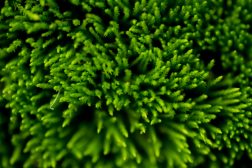(noun) Plural form of stoma.
See stoma for definition and additional information.
You will also like...

Plant Water Regulation
Plants need to regulate water in order to stay upright and structurally stable. Find out the different evolutionary adaptations of plants in terms of structure (e.g. stomata) and physiological mechanisms (e.g. root pressure, capillarity, transpiration pull, curving of leaves, etc.) that enabled them to maintain the appropriate water level...

Leaves
Leaves are the major photosynthetic organ of a plant. Apart from that, they are also crucial to water movement. In this tutorial, various plant processes are considered in more detail. It also includes topics on leaf arrangements, leaf types, leaf structure, leaf color, abscission, and importance to humans...

Water in Plants
The movement of molecules (specifically, water and solutes) is vital to the understanding of plant processes. This tutorial will be more or less a quick review of the various principles of water motion in reference to plants. ..

Plant Metabolism
Plants are responsible for incredible feats of molecular transformation. Plant processes, such as photosynthesis, photophosphorylation, chemiosmosis, carbon fixing reactions, respiration, are presented in this tutorial...

Growth and Plant Hormones
Plants, like animals, produce hormones to regulate plant activities, including growth. They need these hormones to respond well to their environment and to sustain growth, development, and dispersal. Plant biologists recognize five major groups of plant hormones: auxins, gibberellins, ethylene, cytokinins, and abscisic acid. Find out in this guide the importance of each hormone in the life of a plant...

Bryophytes
Bryophytes (nonvascular plants) are a plant group characterized by lacking vascular tissues. They include the mosses, the liverworts, and the hornworts. These groups of plants require external water, usually in the form of dew or rain. Some of them grow exclusively in dark, damp environments in order to provide moisture. Find out more about them here...
